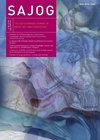在怀孕期间服用草药和不良的围产期结局
IF 0.3
Q4 OBSTETRICS & GYNECOLOGY
引用次数: 2
摘要
背景。南非(SA)的孕妇传统上使用草药,尽管潜在的风险或益处尚未完全阐明。目标。确定本地区孕妇使用草药的流行程度,并探讨使用草药的原因。方法。这项横断面研究于2014年9月1日至2014年12月31日在爱德华八世国王医院进行。无论结果如何,妇女在分娩后使用结构化问卷进行访谈。调查问卷询问了妇女的人口统计数据、社会和以前的产科史以及目前怀孕期间使用草药的情况。结果。共有299名女性接受了采访。使用草药的患病率为33.7% (n =101),主要通过口服途径。这些妇女中有58人(57.4%)在整个怀孕期间使用草药。服用草药的原因包括一般的健康,或使分娩更容易或更快。使用草药的孕妇剖宫产率高于未使用草药的孕妇(79.2% vs 52.8%;p = 0.001)。118名妇女喝了沾有粪污的酒;使用草药者占59%,而不使用草药者占29.6% (p <0.001)。服用者的围产期死亡率也较高(p <0.04)。没有产妇死亡。结论。在这项研究中,三分之一的南非黑人孕妇使用草药,这与显著的不良产科和围产期结局有关。本文章由计算机程序翻译,如有差异,请以英文原文为准。
Ingestion of herbal medication during pregnancy and adverse perinatal outcomes
Background. Pregnant women in South Africa (SA) traditionally use herbal medicines even though the potential risk or benefit is not fully elucidated. Objectives. To determine the prevalence of the use of herbal medicines in pregnant women in our setting, as well as explore the reasons for use. Methods. This cross-sectional study was conducted at King Edward VIII Hospital, from 1 September 2014 to 31 December 2014. Women were interviewed using a structured questionnaire during the post-delivery period, irrespective of outcome. The questionnaires enquired about women’s demographic data, social and previous obstetric history and herbal medication use during current pregnancy. Results. Two hundred and ninety-nine women were interviewed. The prevalence of herbal medication use was 33.7% ( n =101), mainly via the oral route. Fifty-eight (57.4%) of these women used herbal medication throughout their pregnancy. Reasons given for herbal ingestion included general well-being, or to make labour easier or come sooner. There was a high rate of caesarean delivery among pregnant women who used herbal medication compared with those who did not (79.2% v. 52.8%; p =0.001). One hundred and eighteen women had meconium-stained liquor; 59% of the herbal medication users compared with 29.6% of the non-users ( p <0.001) comprised this group.The perinatal mortality rate was also higher among users ( p <0.04). There were no maternal deaths. Conclusion. Herbal medicine was used by a third of black South African pregnant women in this study and was associated with significant adverse obstetric and perinatal outcomes.
求助全文
通过发布文献求助,成功后即可免费获取论文全文。
去求助
来源期刊

South African Journal of Obstetrics and Gynaecology
Medicine-Obstetrics and Gynecology
CiteScore
0.40
自引率
0.00%
发文量
5
审稿时长
15 weeks
期刊介绍:
The SAJOG is a tri-annual, general specialist obstetrics and gynaecology journal that publishes original, peer-reviewed work in all areas of obstetrics and gynaecology, including contraception, urogynaecology, fertility, oncology and clinical practice. The journal carries original research articles, editorials, clinical practice, personal opinion, South Africa health-related news, obituaries and general correspondence.
 求助内容:
求助内容: 应助结果提醒方式:
应助结果提醒方式:


